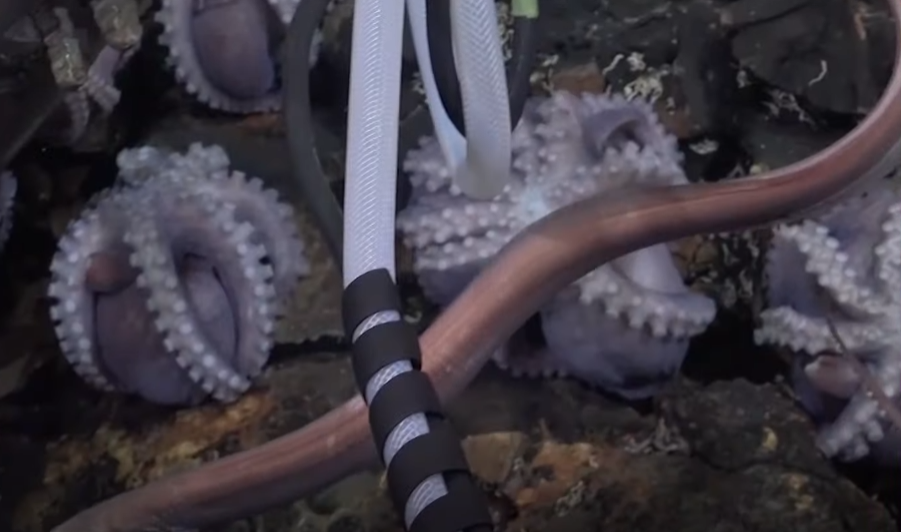Four new species of deep-sea octopuses have been discovered by scientists in a landmark investigation off the coast of Costa Rica.
Two expeditions, conducted in June 2023, unveiled these enigmatic creatures in a 260 square kilometer area of the Pacific coastline, focusing on sea mounts.
The researchers encountered three never-before-seen hydrothermal springs during the initial expedition. Spanning distances between 18.5km and 55.5km, these springs exhibited distinct temperatures and water chemistries, each supporting unique ecosystems.
The scientists, using a remotely operated vehicle (ROV) named SuBastian, observed two octopus nurseries and a skate nursery around the low-temperature springs. Six months later, the team revisited the site to capture footage and collect samples.
These low-temperature springs, only slightly warmer than the seabed, present a considerable challenge to locate, with a temperature difference of approximately 8°C. According to researcher Beth Orcutt, finding them is akin to walking in a forest you’ve never been in before, with a flashlight, trying to find a hot spring.
In contrast, the expedition also explored 350°C hydrothermal vents, emitting massive plumes of smoke visible from a distance. Between both expeditions, the team identified four new octopus species approximately 2.4km below the ocean surface.
Dorado Octopus’s Unique Brooding

Researchers Janet Voight and Fiorella Vasquez are currently working on describing these species, with one named the Dorado octopus, discovered on El Dorado Hill.
The Dorado octopus, a new type of mucusoctopus, was the only species brooding eggs at the hydrothermal springs.
Scientists believe that muusoctopus exhibit this behavior near vents due to the slightly warmer water. The remaining three species are yet to be officially named.
Remarkably, the team collected 310 animal samples during their expeditions, deviating from the norm by keeping the samples in Costa Rica’s Museum of Zoology instead of sending them abroad.
This decision aligns with the hope that local scientists can leverage these samples to better understand and protect the unique local ecosystems, marking a significant step in deep-sea exploration and preservation.


Comments are closed.